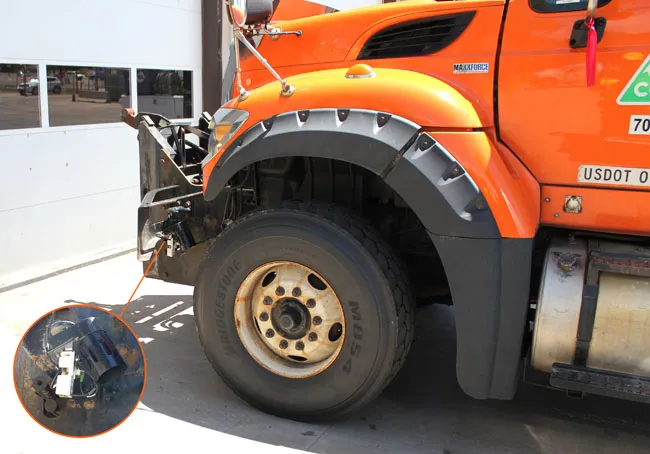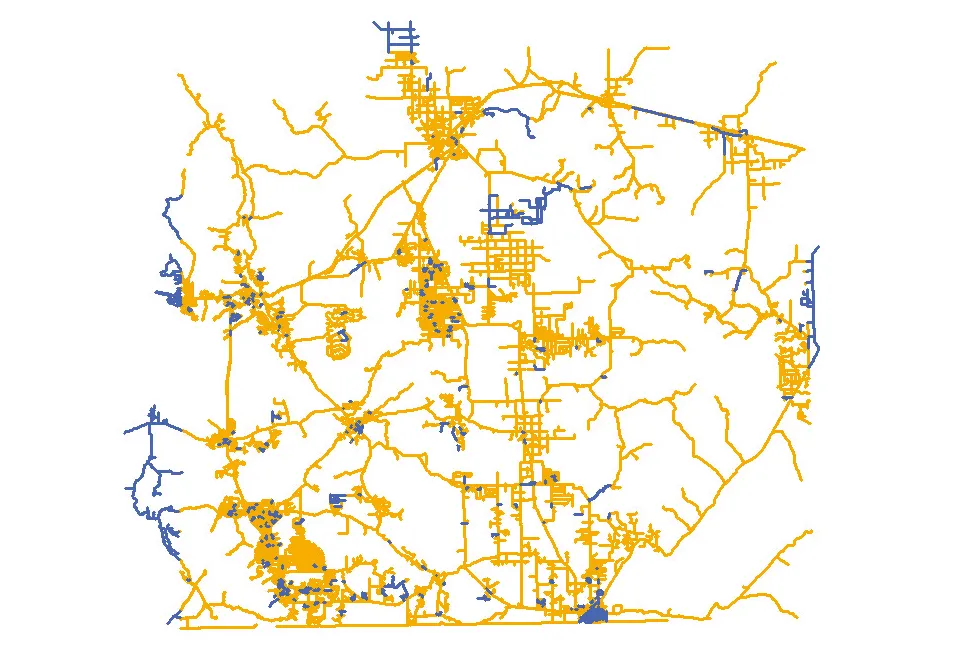The I-95 Corridor Coalition, the University of Maryland and Inrix have announced a three-year extension and expansion of the I-95 Coalition Vehicle Probe Project (VPP), operational since 2008, that uses crowd-sourced traffic data and advanced analytics techniques to turn billions of data points into insights that are transforming the manner in which member states build, manage and measure their road networks.
May 4, 2012
Read time: 3 mins
RSSThe I-95 Corridor Coalition, the University of Maryland and 5367 INRIX have announced a three-year extension and expansion of the I-95 Coalition Vehicle Probe Project (VPP), operational since 2008, that uses crowd-sourced traffic data and advanced analytics techniques to turn billions of data points into insights that are transforming the manner in which member states build, manage and measure their road networks. The project now provides INRIX real-time and historical traffic information for more than 20,000 miles of roads across 10 states along the I-95 corridor.
“By expanding the programme, we expect to achieve even greater gains from smarter investment in our transportation networks and help our members provide improved service to travellers,” said George Schoener, executive director, I-95 Corridor Coalition. “The significance of the project to our member agencies is very clear, with all 10 states investing some level of their own resources in the project, in some cases committed out to 2014.”
Key elements of the project’s expansion over the next three years include massive coverage expansion from 5,000+ miles of road coverage in eight states to more than 20,000 centerline miles in 10 states. It also will see complete freeway coverage in six states – Rhode Island, New Jersey, Delaware, Maryland, North Carolina and South Carolina. In addition to complete freeway coverage, North Carolina is investing in coverage across its entire road network gaining access to more than 15,000 miles of highways, interstates, arterials and secondary roads of INRIX real-time and historical traffic information statewide – the first state to standardise on INRIX data.
Another key element of the project’s expansion will see complete I-95 coverage across Georgia, Florida, Pennsylvania and Virginia, including interstates around Savannah, most South Florida limited access roads and all freeways and arterials in Virginia’s Hampton Roads area, while the industry’s first ramp/interchange data offers agencies insight into real-time traffic conditions in areas previously blind to traffic operations. Many complicated urban area interchanges are now available for viewing and agency data integration.
The expansion also permits growth of the numerous traveller information services offered by the Coalition’s members, expanded traffic operations support, congestion management planning, as well as tools for statewide performance monitoring and analysis.
Through a complete, precise view of traffic conditions across their road network, the Vehicle Probe Project not only helps target investment in roads and transit in the most critical areas but delivers improved traffic operations at reduced cost. According to4027 North Carolina Department of Transportation where previous approaches to gathering traffic data had a life cycle cost of nearly $50,000 per mile, INRIX vehicle probe data has been proven to deliver more coverage at about 25 per cent of the per mile life cycle cost.
“With the vehicle probe project supporting many of our critical operations, travel information and planning applications, we’re able to do more with less,” said Gene Conti, secretary of North Carolina Department of Transportation. “In fact, INRIX combined with our own real-time incident and construction data not only makes us more efficient, but we believe it makes us compliant with the new federal regulation on real-time system monitoring…more than three years ahead of the deadline.”
The I-95 Corridor Coalition is a partnership of transportation agencies, toll authorities, and related organisations, including public safety, port, transit and rail organisations – from the State of Maine to the State of Florida – working together to improve long distance travel for passengers and freight.
“By expanding the programme, we expect to achieve even greater gains from smarter investment in our transportation networks and help our members provide improved service to travellers,” said George Schoener, executive director, I-95 Corridor Coalition. “The significance of the project to our member agencies is very clear, with all 10 states investing some level of their own resources in the project, in some cases committed out to 2014.”
Key elements of the project’s expansion over the next three years include massive coverage expansion from 5,000+ miles of road coverage in eight states to more than 20,000 centerline miles in 10 states. It also will see complete freeway coverage in six states – Rhode Island, New Jersey, Delaware, Maryland, North Carolina and South Carolina. In addition to complete freeway coverage, North Carolina is investing in coverage across its entire road network gaining access to more than 15,000 miles of highways, interstates, arterials and secondary roads of INRIX real-time and historical traffic information statewide – the first state to standardise on INRIX data.
Another key element of the project’s expansion will see complete I-95 coverage across Georgia, Florida, Pennsylvania and Virginia, including interstates around Savannah, most South Florida limited access roads and all freeways and arterials in Virginia’s Hampton Roads area, while the industry’s first ramp/interchange data offers agencies insight into real-time traffic conditions in areas previously blind to traffic operations. Many complicated urban area interchanges are now available for viewing and agency data integration.
The expansion also permits growth of the numerous traveller information services offered by the Coalition’s members, expanded traffic operations support, congestion management planning, as well as tools for statewide performance monitoring and analysis.
Through a complete, precise view of traffic conditions across their road network, the Vehicle Probe Project not only helps target investment in roads and transit in the most critical areas but delivers improved traffic operations at reduced cost. According to
“With the vehicle probe project supporting many of our critical operations, travel information and planning applications, we’re able to do more with less,” said Gene Conti, secretary of North Carolina Department of Transportation. “In fact, INRIX combined with our own real-time incident and construction data not only makes us more efficient, but we believe it makes us compliant with the new federal regulation on real-time system monitoring…more than three years ahead of the deadline.”
The I-95 Corridor Coalition is a partnership of transportation agencies, toll authorities, and related organisations, including public safety, port, transit and rail organisations – from the State of Maine to the State of Florida – working together to improve long distance travel for passengers and freight.









